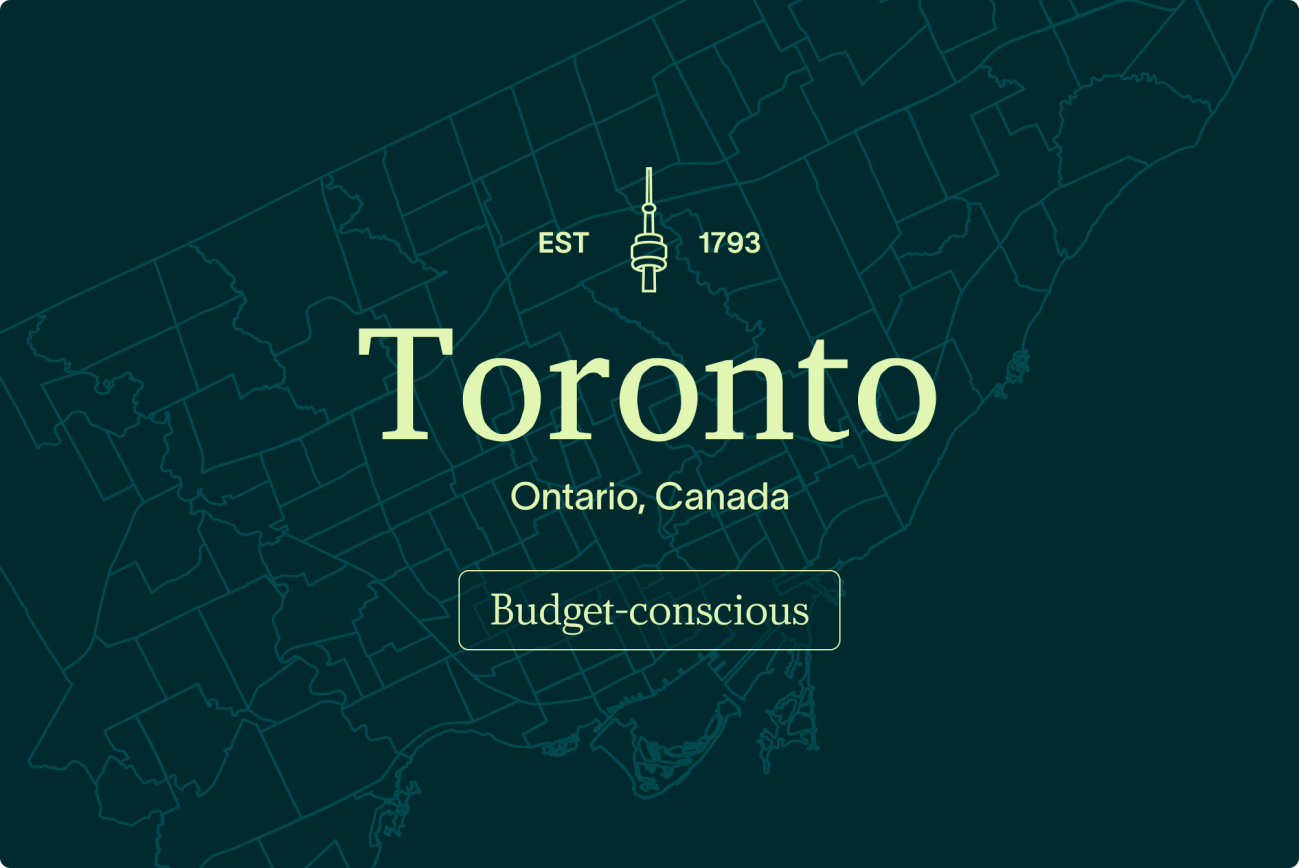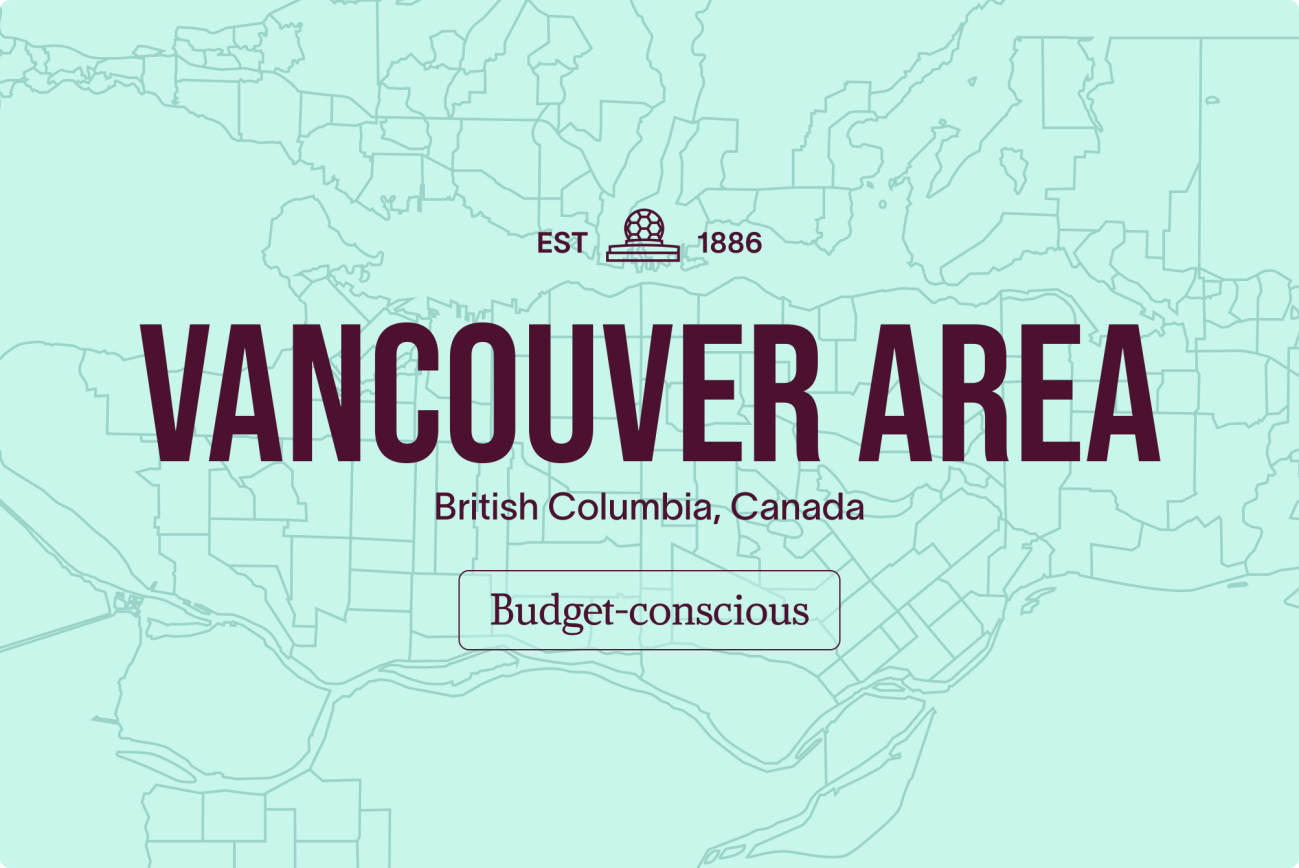If you’re in the market for a new home, you may be wondering how to negotiate a house price. By understanding how much you can afford, your needs, the market and the seller’s motivations, you can put your best foot forward in coming to a deal that suits everyone involved.
How to negotiate house price through financing
The first step in being able to negotiate the best price for a home you love is to prepare financially. That means knowing how much you can afford, setting a budget—and sticking to it.
To set your budget you should first calculate how much you can afford to put down in a lump sum as a down payment. Your down payment amount goes toward the purchase price of the home and is deducted by the lender so that the remaining cost can be covered by your mortgage.
However, it is often recommended that you budget 20% of the house price to go toward your down payment, so that you don’t have to buy mortgage loan insurance, in addition to the interest you’ll pay on a larger loan amount. So applying this rule, if you have $100,000 for your down payment, that would be 20% of a $500,000 home.
Mortgage pre-qualification is a useful tool to get a sense for what you may be able to afford early in the process. The next step is mortgage pre-approval, which involves a credit check and is needed to make an offer. Pre-approval is done through the lender, who prepares an official pre-approval letter showing the seller that you have secured the finances you need to buy the home.
Based on borrowing 80% of the house price, small changes in percentage points on your interest rates could make a significant difference to the overall cost of your loan. For this reason, you should always shop around to try to find the best rates, based on your financial profile.
The rate you are offered by lenders will be dependent on a number of factors, including market conditions and your personal history with credit. That’s why, ideally, you want your credit score to be in its best shape when applying for a mortgage. In some cases that may mean holding off on buying for a few months, or even years, to give you more time to build and improve your credit score.
You can also play around with the type of rate (fixed or variable) you choose and the term of the mortgage. Typically, variable rates (when your rate changes with market conditions) are lower than fixed rates because they are less risky for the lender, although more risky for you. However, variable rates are entirely dependent on market conditions. If the Bank of Canada sets higher interest rates, the rate you pay may be higher than the fixed-rate options.
If you want to know exactly how much you will be paying, then you may opt for a three- or five- year fixed rate mortgage, meaning that even if the market interest rate goes up or down, your payments will remain the same. Five-year mortgage rates can be lower than three-year rates, but it means you’re tied to the same rate for a longer period.
A mortgage advisor can help you review the different mortgage options and lay out how your choice could impact how much you pay over the course of the loan. You should also ask about whether there are any homebuyer grants you could be eligible for and could ease the financial burden of homebuying and ownership.
Another less common option to explore is owner (or seller) financing. Instead of borrowing from a traditional lender, such as a bank, the seller finances the home purchase. It is usually a more expensive way to borrow money since the seller often charges a higher interest rate than what’s available on the market, however you forgo the need for a lender, appraisal and inspection, meaning the process can be more streamlined. While you’ll usually need some sort of credit check, it’s not likely to be as stringent, meaning it could give you the opportunity to buy with a lower score than if you went the traditional route.
Once you have your finances in order, it’s also important to know what you’re looking for so you’re ready to make an offer when a home meets your needs.
How to negotiate a house price with the seller
The best way to negotiate a house price is to get off to a good start. In home price negotiations, that means putting in a competitive offer in the first place. Your real estate agent will guide you on your offer, but ultimately it comes down to knowing the market and the seller’s motivations, along with your budget and goals.
Your agent should share with you some comparable sales in the area, so you have a good grasp on the value of the property. They can also provide intel on why the owner is selling, which may provide leverage in your home price negotiations. For example, if you know that the owner is selling to move out of the country by a particular date, then you might decide to adjust the timeline of your offer accordingly.
If you have room in your budget, you may also decide to make a strategic counteroffer if your first one is rejected. In this case, your real estate agent will guide you on a higher number that still fits your budget but that the seller may be more likely to agree to.
A counteroffer can also include factors beyond the purchase price to sweeten the deal. Areas of negotiation to discuss with your agent could be who covers the closing costs or particular items, such as appliances, furniture or fixtures to be included or excluded from the sale.
Negotiate after the home inspection
The home inspection takes place after an offer has been made, but before the deal closes. That’s because the inspection can be used to identify any issues, which could impact the value of the home and your offer. An inspector will assess the property’s physical structure, including the roof and the foundation, to make sure it’s safe and functionally sound.
Based on the outcome of the inspection, you then have the opportunity to amend your offer. Typically, your real estate agent will make recommendations and then negotiate on your behalf. Note that they will likely recommend that you avoid lengthening the closing process by requesting non-essential, cosmetic-type repairs, which can be far more easily fixed once you own the home.
For minor findings, your agent may negotiate a pre-purchase repair, so the seller makes the necessary fix. Alternatively, your agent can negotiate a cash credit at closing for you to cover the repair costs, which is usually quicker, but is not allowed by every lender.
Any major issues revealed in the inspection could warrant a renegotiation of the house price to compensate for the repair costs. However, in some cases, when it’s related to the safety of the property, your lender may not approve the loan until certain repairs have been completed by the seller. This may delay the closing process significantly and you could decide to change or pull your offer entirely.
Negotiate through contingencies
Contingencies are part of the purchase agreement which state the particular conditions which need to be met in order for the real estate deal to be legally binding and close. Contingencies are included to protect both the buyer and the seller, although fewer contingencies typically mean less risk for the seller and a simpler closing process. In other words, the fewer contingencies you include, the more attractive your offer is likely to be to the seller.
There are certain contingencies which are common and recommended in most home purchase agreements but may be adjusted or waived to give you leverage in your home price negotiations. For example, the financing contingency provides buyers with a set time frame to secure their financing, like a mortgage or sale of their current home, before buying the new home. It allows the buyer to walk away from the deal without penalty if they do not get the financing they require within the contracted time.
However, in a competitive market the financing contingency can be used as part of the strategy to negotiate a house price. Depending on the seller’s motivation for selling, an offer may be more attractive if the buyer contracts a shorter timeline in the financing contingency (or even waives it altogether if they’re able to make a cash offer). From the seller’s perspective, little or no time during which the deal could fall through minimizes their risk and is preferable.
Your agent can guide you on making an offer more favourable to the seller by recommending the shortest possible timeline that allows you to secure financing, but also meet the seller’s motivations, such as a quick sale.
The appraisal contingency can also be used to make an offer more attractive to the seller and as part of a house price negotiation tactic, without increasing the monetary amount. The appraisal contingency is typically included to allow the buyer to renegotiate or walk away from the deal if the appraised market value of the home is lower than the amount offered. That’s because after an offer is made the lenders use the appraised market value of the home to determine the mortgage. That means, as a buyer, if you still wanted to buy the home you would be responsible for sourcing the additional funding yourself. In most cases this is a protective contingency for the buyer, however in a highly competitive market you may choose to waive it knowing you can—and want—to pay above the market value for the home.
As an example, if you are one of two prospective buyers who are both offering the same amount for a home, but you’re waiving or minimizing the financing and appraisal contingencies, then that’s going to be the easiest and least risky option for the seller. That’s because, without those contingencies, the likelihood of the deal going through is far greater and the timeline much shorter—a win-win from the seller’s perspective, but not always possible or recommended for the buyer (unless you’re willing to knowingly pay more than the house is worth in the current market).
How to negotiate house price in a competitive market
In addition to being strategic and selective about your purchase agreement’s contingencies, other house price negotiation tactics can make your offer stand out, beyond the purchase price. In a highly competitive market, where there may be multiple offers, these can be the difference between you and an alternative buyer getting the house.
Your real estate agent will often recommend you keep your offer as simple and “clean” as possible. When the seller is faced with multiple competing offers, long and complicated offer terms are going to be the less attractive option. While certain contingencies are going to be necessary, you don’t want to get lost in the weeds of complex requests.
Another cost-free way of making your offer stand out is to write the seller a personal letter. In the middle of doing the real estate deal, the human and personal aspect of a home sale can get lost. Writing a letter to the owners explaining why you love the home and your goals in living there could be the difference between you and someone unknown. You never know what parts of your personal story might resonate with the seller.
However, if you’ve got some room in your budget and you’re looking for a way to compete with other offers financially, then you could include an escalation clause. An escalation clause states that you are willing to increase your offer by set increments and up to a maximum limit, in order to beat other offers that may come in.
This can be a good option if you really love a home, have the budget to raise your offer and would like the reassurance that you’ll not lose out on a home because you didn’t offer your top spend.
Creative house price negotiation tactics
Sometimes the best way to negotiate a house price is by having a good understanding of the seller’s needs and motivations. This is the type of intel you can get through your agent and can be very helpful in your strategy to negotiate house price.
For example, if you know that the seller needs more time in the home before they move, then a lease-back agreement gives them that flexibility. A lease-back agreement allows the seller to rent the home from the buyer after closing for a set period of time and pay the buyer rent. If it works for you and the seller needs the extra time, it can be a great way to make your offer more attractive.
House price negotiation tactics
As with any negotiation, the goal in negotiating house price is to communicate, collaborate and compromise until you reach an agreement that everyone is happy with. Your real estate agent will be able to guide you through each step, make recommendations and oftentimes do the negotiations on your behalf. Of course, there is a lot at stake when it comes to making one of life’s biggest investments, but it’s important to remain positive, even if your first offer isn’t accepted.
When you understand the market, your needs, how much you can afford and the seller’s motivations, you put yourself in the best position to make a compelling offer. And there’s often room for negotiation and even a counteroffer.
In some cases, especially a competitive seller’s market, you may need to walk away from a deal, but with the right mindset and guidance, you can find—and negotiate on—the home for you.
Get matched with an expert
Being a homeowner doesn’t mean you have to be a do-it-aloner. Houseful is here to introduce you to experts who don’t just know their stuff, they know you too. Get matched with a real estate agent in your area for local insights and connect with an RBC mortgage advisor for financing guidance. Visit houseful.ca.
This article offers general information only and is not intended as legal, financial or other professional advice. A professional advisor should be consulted regarding your specific situation. While the information presented is believed to be factual and current, its accuracy is not guaranteed and it should not be regarded as a complete analysis of the subjects discussed. All expressions of opinion reflect the judgment of the author(s) as of the date of publication and are subject to change. No endorsement of any third parties or their advice, opinions, information, products or services is expressly given or implied by Royal Bank of Canada or its affiliates.
Browse the newest listings in your area
OJOHome Canada Ltd. (“Houseful”) is a wholly-owned subsidiary of Royal Bank of Canada
20 King Street West, 8th Floor
Toronto, ON, Canada, M5H 1C4
833-709-1946
IDX information is provided exclusively for consumers’ personal, non-commercial use and that it may not be used for any purpose other than to identify prospective properties consumers may be interested in purchasing. Information deemed reliable but not guaranteed to be accurate. Listing information updated daily.
Houseful is committed to ensuring accessibility for individuals with disabilities. We are continuously working to improve the accessibility of our web experience for everyone. We welcome feedback and accommodation requests, please submit them here.
The trademarks REALTOR®, REALTORS®, and the REALTOR® logo are controlled by The Canadian Real Estate Association (CREA) and identify real estate professionals who are members of CREA. The trademarks, Multiple Listing Service® and the associated logos are owned by CREA and identify the quality of services provided by real estate professionals who are members of CREA. Used under license.
Please use the following address to send referral payments:
Lockbox: OJOHome Canada Ltd. PO Box 9479, Stn A, Toronto, ON M5W 4E1
Lockbox Number: T09479C
® / ™ Trademark(s) of Royal Bank of Canada. Used under licence.




